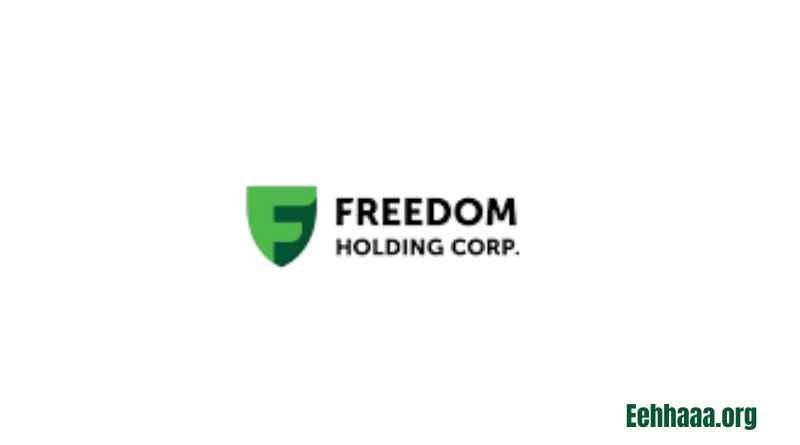The business world is vast and varied, encompassing a multitude of industries and sectors. Among these, the miscellaneous field stands out as a catch-all category, housing companies that don’t fit neatly into conventional industry classifications. If you’ve ever wondered what companies are in the miscellaneous field, you’re not alone. This sector is a fascinating mix of innovation, creativity, and unique business models. Let’s dive into the world of miscellaneous companies and discover the unexpected players shaping this eclectic field.
Defining the Miscellaneous Field
Before we delve into specific companies, it’s important to understand what we mean by the “miscellaneous field.” Essentially, this category includes businesses that don’t belong to standard industry sectors like technology, healthcare, finance, or retail. These companies often operate in niche markets, providing specialized products or services that cater to unique customer needs. They can range from family-owned businesses with a local focus to innovative startups aiming to disrupt traditional markets.
Notable Companies in the Miscellaneous Field
3M Company
One of the most prominent names in the miscellaneous field is 3M Company. Known for its innovation and diverse product range, 3M operates across multiple industries, including consumer goods, healthcare, and industrial products. Its adhesive products, like Scotch Tape and Post-it Notes, are household staples. However, 3M’s reach extends far beyond office supplies. The company also produces advanced materials, safety products, and healthcare solutions, demonstrating how a single company can impact numerous sectors through a varied product portfolio.
Berkshire Hathaway
Berkshire Hathaway, led by the legendary investor Warren Buffett, is another giant in the miscellaneous field. This conglomerate owns a diverse array of businesses, from insurance (Geico) and energy (Berkshire Hathaway Energy) to manufacturing (Fruit of the Loom) and retail (See’s Candies). Berkshire’s eclectic mix of holdings exemplifies the essence of the miscellaneous category—companies that don’t fit into one specific industry but instead span multiple sectors, leveraging their diverse assets for growth and stability.
Johnson & Johnson
Though often associated with healthcare and pharmaceuticals, Johnson & Johnson’s wide-ranging portfolio places it firmly in the miscellaneous field. Beyond its well-known medical products and drugs, the company also has a significant presence in consumer goods, producing popular brands like Band-Aid, Tylenol, and Listerine. This blend of healthcare and consumer products highlights the diverse nature of companies in the miscellaneous sector, where versatility and adaptability are key.
Emerging Players in the Miscellaneous Field
While established giants like 3M, Berkshire Hathaway, and Johnson & Johnson dominate the scene, the miscellaneous field is also home to numerous emerging companies making waves with innovative approaches and unique business models.
Etsy
Etsy, the online marketplace for handmade and vintage items, is a prime example of an emerging company in the miscellaneous field. Etsy provides a platform for independent artisans and sellers to reach a global audience, offering everything from handcrafted jewelry to vintage clothing and home decor. By focusing on niche markets and fostering a community of creators, Etsy has carved out a distinctive space in the e-commerce landscape, exemplifying how companies in the miscellaneous field often thrive by addressing specific, underserved markets.
WeWork
WeWork, the provider of shared workspaces and office services, represents another intriguing player in the miscellaneous field. By reimagining traditional office environments and promoting a culture of collaboration and flexibility, WeWork has disrupted the real estate and office leasing industries. Despite facing significant challenges in recent years, the company’s innovative approach to workspaces underscores the potential for growth and impact in the miscellaneous sector.
The Role of Innovation and Adaptability
Innovation and adaptability are hallmarks of companies in the miscellaneous field. These businesses often thrive by identifying unique opportunities and responding to changing market demands with agility. Whether through technological advancements, creative business models, or a focus on niche markets, companies in this sector demonstrate a remarkable capacity for reinvention and growth.
Airbnb
Airbnb’s rise to prominence is a testament to the power of innovation in the miscellaneous field. By leveraging the sharing economy, Airbnb transformed the hospitality industry, allowing homeowners to rent out their properties to travelers. This peer-to-peer model not only provided travelers with more affordable and diverse accommodation options but also empowered individuals to monetize their unused space. Airbnb’s success illustrates how companies in the miscellaneous field can redefine entire industries by introducing novel concepts and leveraging technology.
SpaceX
SpaceX, founded by Elon Musk, is another stellar example of innovation driving success in the miscellaneous field. While traditionally categorized within the aerospace industry, SpaceX’s groundbreaking advancements in space travel and exploration position it as a pioneering force that transcends conventional industry boundaries. By developing reusable rockets and aiming for Mars colonization, SpaceX exemplifies the ambitious, forward-thinking spirit characteristic of many miscellaneous companies.
Challenges and Opportunities
Operating in the miscellaneous field comes with its own set of challenges and opportunities. On one hand, the lack of a defined industry framework can make it difficult for these companies to secure funding, attract talent, and gain market recognition. On the other hand, the flexibility and diversity inherent in the miscellaneous field allow businesses to pivot quickly, explore new markets, and innovate without being constrained by traditional industry norms.
Funding and Investment
Securing funding can be a significant hurdle for companies in the miscellaneous field. Investors often prefer businesses with clear, easily understood models and predictable growth trajectories. Miscellaneous companies, with their diverse and sometimes unconventional approaches, may struggle to fit this mold. However, those that can effectively communicate their value proposition and demonstrate their potential for innovation and market disruption can attract visionary investors willing to take calculated risks.
Talent Acquisition
Attracting top talent is another challenge. Miscellaneous companies, particularly startups and emerging players, may lack the brand recognition and resources of established industry giants. However, they can often appeal to individuals seeking dynamic, innovative work environments and the opportunity to make a tangible impact. By fostering a culture of creativity and offering unique career opportunities, miscellaneous companies can attract passionate, driven professionals eager to contribute to their success.
The Future of the Miscellaneous Field
Looking ahead, the miscellaneous field is poised for continued growth and evolution. As technology continues to advance and societal needs shift, new opportunities will emerge for companies willing to think outside the box and challenge conventional wisdom. Whether through disruptive innovations, niche market focus, or versatile business models, companies in the miscellaneous field will continue to play a vital role in the global economy.
Sustainability and Social Impact
Increasingly, miscellaneous companies are recognizing the importance of sustainability and social impact. By addressing environmental and social challenges, these businesses can not only contribute positively to society but also differentiate themselves in a competitive market. For instance, companies like Patagonia, which operates in the outdoor apparel and equipment sector, emphasize environmental sustainability and ethical practices, resonating with conscious consumers and setting a standard for others in the miscellaneous field.
Conclusion
The miscellaneous field is a vibrant and dynamic segment of the business world, encompassing a diverse array of companies that defy traditional industry classifications. From established giants like 3M and Berkshire Hathaway to emerging innovators like Etsy and WeWork, these companies exemplify the power of versatility, innovation, and adaptability. By understanding what companies are in the miscellaneous field and how they operate, we gain insight into a unique and ever-evolving sector that continually shapes and redefines the global economy. As we move forward, the miscellaneous field will undoubtedly continue to surprise and inspire, proving that sometimes, the most unexpected paths lead to the most remarkable destinations.




